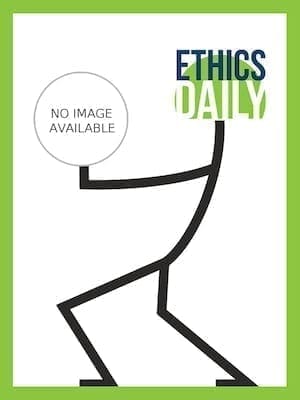Freeset Ministries co-founders Kerry and Annie Hilton felt God’s call to missions without knowing that call would take them to the red light district of Calcutta.
Freeset is a business set up in Ram Bagan, a district where thousands of women work as prostitutes. Women who come to Freeset receive training to sew jute bags for export to Europe, America and Australia. They work an eight-hour day, receive literacy lessons on the job and are free to go on to other employment if they desire. With the income they receive, they are able to provide for their families without being forced to walk the streets.
The Hiltons shared their ministry’s story at a recent weeklong International Consultation to Women in Prostitution at Green Lake Conference Center in Wisconsin. More than 60 ministry representatives from 30 countries attended, along with about 100 laypeople from the United States and Canada. Sponsors included the Women’s Department of the Baptist World Alliance, the American Baptist Historical Society, American Baptist Women’s Ministries, International Ministries of American Baptist Churches in the U.S.A. and Global Women.
“Alternative economic development is critical when addressing the issues that enable women in prostitution to find a new life,” said Lauran Bethell, a Global Women board member and American Baptist missionary who helped organize the consultation. The first-time conference provided individuals working with women in prostitution an opportunity for education, networking and spiritual nourishment, along with raising awareness among Baptists of the issue of sexual exploitation.
“It was clear that this was God’s moment to bring these various organizations to learn from each other,” Bethell said, adding that the gathering exceeded her expectations. One outcome was establishment of regional networks to expand the number of ministries devoted to women in prostitution and plans for a second consultation in April 2006.
The U.S. government estimates that between 600,000 and 800,000 people are trafficked across international borders each year. Victims are forced into prostitution or to work in quarries and sweatshops, on farms, as child soldiers and in many forms of involuntary servitude.
Millions more are trafficked within their own countries. Of those trafficked across trans-national borders, 70 percent are female and 50 percent children. The majority of those women and girls fall prey to the commercial sex trade.
Slave traders prey on the vulnerable, luring children and young women with promises of marriage, employment, education or a better life. Once trapped in brothels, they are subject to physical and emotional abuse, drug addiction and are prone to infections including HIV/AIDS.
The State Department labels Bangladesh, Ecuador, North Korea, Venezuela, Burma, Equatorial Guinea, Sierra Leone, Cuba, Guyana and Sudan as countries doing the least to comply with minimum standards safeguarding against human trafficking, but no country is immune. Estimates of people trafficked into the U.S. range from 14,500 to 17,500.
The United Nations estimates that the profits from human trafficking rank it among the top three revenue sources for organized crime, after trafficking in narcotics and arms.
Bethell is a Global Service Missionary based in Prague, Czech Republic, where she is a consultant for ministries addressing the exploitation and abuse of women and children. Her work is mentioned in leader material for Acacia Resources newest on-line Sunday school curriculum, Leading Churches into 21st Century Missions: 13 Lessons in Acts.
The daughter of an American Baptist pastor, Bethell was teaching at an international school in Hong Kong when she entered missionary service. After graduating from seminary in the U.S., she was commissioned by International Ministries to serve in Thailand. There she helped establish the New Life Center in Chiang Mai in 1987 to help rehabilitate and reduce risk for women sold, tricked or willfully drawn into prostitution.
About 20,000 prostitutes work in brothels in the Czech Republic, and most were trafficked in, Bethell said in a recent International Ministries newsletter. The country is known as “a major trafficking center” in Europe, with few organizations offering women alternatives. “The Christian response is almost non-existent,” Bethell said.
Global Women was organized in December of 2001 “because of the need for a woman-to-woman missions initiative,” according to the group’s Web site. The Global Women membership is described as “creative women diverse in age and denomination.”
Bob Allen is managing editor of EthicsDaily.com. With reporting from Suzanah Raffield, executive director of Global Women.

